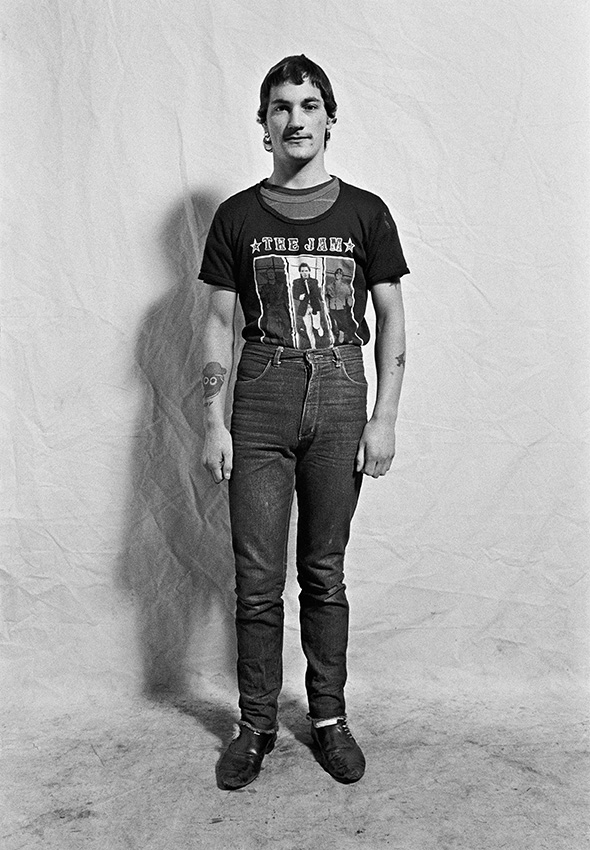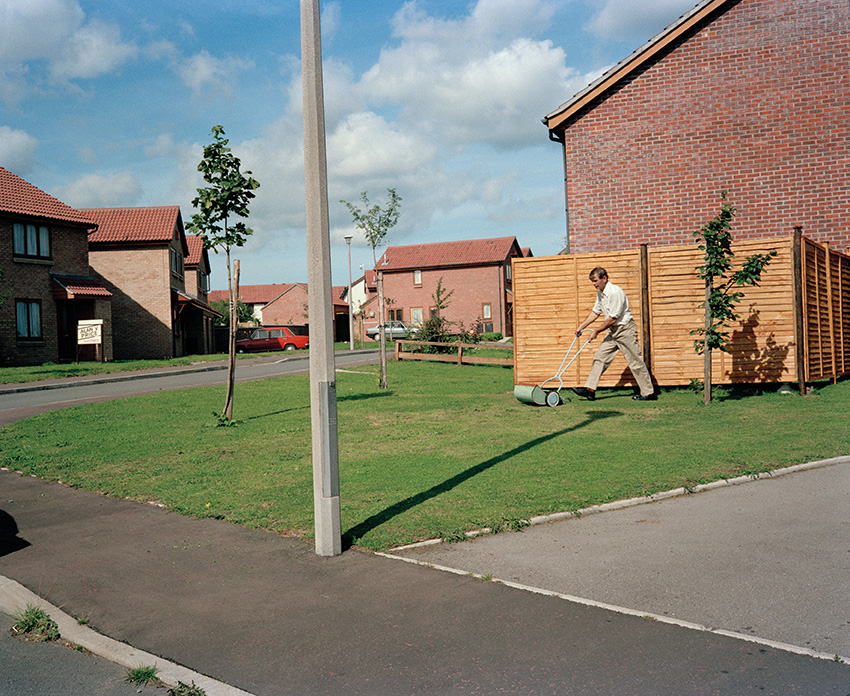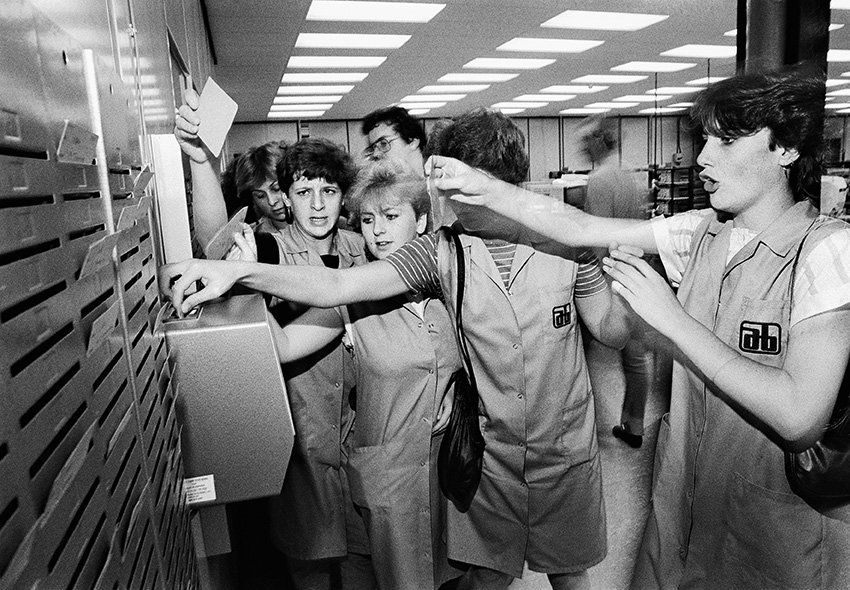When Paul Reas was studying photography with David Hurn, the Magnum great advised him on what exactly he’d need to sustain a long and fruitful career: a decent pair of shoes.
“Of course he didn’t mean a fashionable pair, but a comfortable pair,“ he says, recalling the tip. “A pair which would allow you to walk and stand for long periods of time without discomfort. As much of my work, and the kinds of photography I admire, requires patience, effort and an investment of time, I still think his advice is valid today.”
While the chosen footwear has invariably changed over the years, the 63-year-old’s commitment to documenting British life has remained the same. Born into a working class family in ’50s Bradford, Reas’ sharp, unique observations on class and culture have placed him alongside the likes of Martin Parr, Anna Fox and Paul Graham.

From ‘Flogging a Dead Horse’, 1989 © Paul Reas

From ‘Flogging a Dead Horse’, 1989 © Paul Reas
Now, in a retrospective titled Fables of Faubus, 30 years of his work has been brought together for the first time. Featuring photos taken between 1982 and 2012, the book – published by GOST – maps Britain’s modern social history, from Thatcher right through to the Cameron years, where the early rumblings of Brexit lurk around the corner.
“In many ways, the conditions which delivered the Leave vote in 2016 forms the meta narrative for the book – conditions which resulted in the marginalisation of working class communities,” Reas explains.
“These conditions would be the collapse of the countries manufacturing industries, subsequent unemployment, the promise of rebirth via free market economics and entrepreneurialism, the shift from ‘we’ to ‘me’ culture, the idealisation and repackaging of working lives by the Heritage Industry, the shift of mainstream politics towards the centre right. All of which left many communities feeling isolated and unrepresented.”

From ‘I Can Help’, 1984 © Paul Reas

From ‘Penrhys Estate’, 1984 © Paul Reas
The book takes its title from the Charles Mingus composition of 1959, which was written as a direct protest against Arkansas Governor Orval Faubus who, in 1957, despatched the National Guard to prevent nine black students attending Little Rock Central High School. (“The term ‘Faubus’ came to represent any controlling force – be it racism or political ideology.”)
Ranging from life in Welsh mining towns to redevelopment in London’s Elephant and Castle area, Reas’ work covers a number of different themes and subjects. Consistent throughout, however, is his commitment to exploring the relationship between industry and identity, as well as the manner in which political decisions on a national scale impact small communities.
“We are clearly a divided nation, but this division did not happen overnight,” he says. “We all have to find a way of reconnecting in such a way that no one individual or community feels overlooked or unrepresented because what fills that vacuum of disenchantment is hate and intolerance.”

From ‘From a Distance’, 2012 © Paul Reas

From ‘Penrhys Estate’, 1984 © Paul Reas

From ‘I Can Help’, 1984 © Paul Reas

From ‘The Valleys Project’, 1984 © Paul Reas

From ‘I Can Help’, 1984 © Paul Reas

From ‘The Valleys Project’, 1984 © Paul Reas

From ‘Flogging a Dead Horse’, 1989 © Paul Reas

From ‘The Dance Class’, 1984 © Paul Reas
Fables of Faubus is available now from GOST.
Enjoyed this article? Like Huck on Facebook or follow us on Twitter.
You might like

Remembering New York’s ’90s gay scene via its vibrant nightclub flyers
Getting In — After coming out in his 20s, David Kennerley became a fixture on the city’s queer scene, while pocketing invites that he picked up along the way. His latest book dives into his rich archive.
Written by: Miss Rosen

On Alexander Skarsgård’s trousers, The Rehearsal, and the importance of weirdos
Freaks and Finances — In the May edition of our monthly culture newsletter, columnist Emma Garland reflects on the Swedish actor’s Cannes look, Nathan Fielder’s wild ambition, and Jafaican.
Written by: Emma Garland

A reading of the names of children killed in Gaza lasts over 18 hours
Choose Love — The vigil was held outside of the UK’s Houses of Parliament, with the likes of Steve Coogan, Chris O’Dowd, Nadhia Sawalha and Misan Harriman taking part.
Written by: Isaac Muk

Youth violence’s rise is deeply concerning, but mass hysteria doesn’t help
Safe — On Knife Crime Awareness Week, writer, podcaster and youth worker Ciaran Thapar reflects on the presence of violent content online, growing awareness about the need for action, and the two decades since Saul Dibb’s Bullet Boy.
Written by: Ciaran Thapar

James Massiah: “As much as the social contract is lost, there’s a freedom with that”
Bounty Law — With the release of his latest album, we sat down with the rapper-poet to chat about his new sonic Western, the boom in alternative poetry events, and whether the social contract is broken.
Written by: Isaac Muk

We are all Mia Khalifa
How humour, therapy and community help Huck's latest cover star control her narrative.
Written by: Alya Mooro
